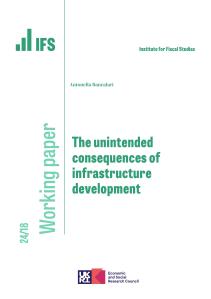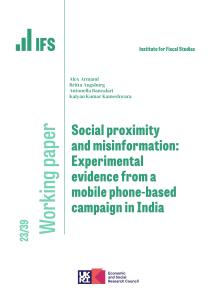Highlights
- We study the effectiveness of follow-up activities in sustaining behavior change.
- Without follow-up activities, the likelihood of reverting to open defecation doubled in a 2-year period.
- Continued follow-up activities lead to only modest reductions in reversal to unsafe sanitation, on average.
- The effectiveness of follow-up activities are however significant where initial conditions are unfavorable.
- The effects were sustained at least one year after the implementation of activities.
Abstract
We implement a randomized controlled trial and a qualitative study to assess whether, and if so how, behavioral change can be sustained. We do so in the context of Pakistan’s national sanitation strategy to combat open defecation, Community-Led Total Sanitation. Our findings demonstrate that continued follow-up activities that build on the original intervention lead to only modest reductions in reversal to unsafe sanitation on average, but gain in importance where initial conditions are unfavorable, i.e. poor public infrastructure and sanitation facilities. Promotion efforts are hence best targeted towards those who face larger difficulties in constructing and maintaining high-quality sanitation. The effects were sustained at least one year after the implementation of activities.











